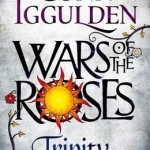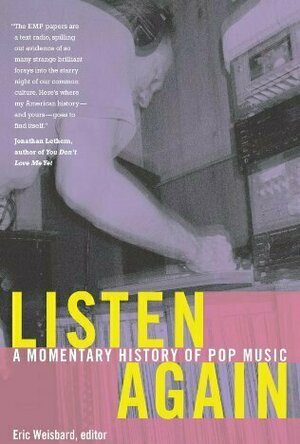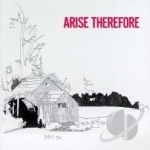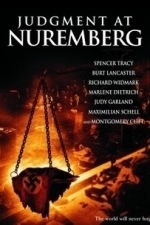Hazel (2934 KP) rated Secrets of a Serial Killer in Books
Jul 5, 2020
Told from multiple points of view, this is a pretty fast moving book, once the usual introductions to the various characters has been completed, and what a great cast of characters the author has created here. The author is also clearly adept at describing the eerie setting and at creating atmosphere ... I was transported to the old hospital, the derelict caravan and the woods surrounding them. The tension and fear in each of the characters is really well told and builds and builds throughout until the gripping and nail-biting conclusion.
Although I enjoyed this book, I do have a few issues that prevent this from being a 5 star read - there was next to nothing regarding the Police input or investigation and they came across as being inept and pretty useless, particularly at the end but I won't go into it here as it would be a spoiler but you will see what I mean when you read it. Also, the blog posts inserted at various points didn't really do anything for me or add to the story that much and I wonder if they were put there as a red-herring?
Despite the niggling issues, this is a creditable and decent debut and even though there are a few unanswered questions, in addition to the cliff-hanger, they are either left to the imagination of the reader or are going to be resolved in another instalment? If so, I would definitely read it.
My thanks go to HarperCollinsUK and One More Chapter via NetGalley for my advance copy in return for an unbiased and unedited review.

Warriorborn (The Cinder Spires 1.5)
Book
From the #1 New York Times –bestselling author of the Dresden Files comes an all-new,...
Deborah (162 KP) rated The Scandalous Duchess in Books
Dec 21, 2018
O'Brien's latest offering gives us the tale of Katherine de Swynford (nee de Roet), famous (or perhaps infamous!) as the mistress and later wife of John of Gaunt, Duke of Lancaster (and if you didn't know that he marries her, I think the title might give it away, so I don't think it's a spoiler!). There actually isn't all that much known about Katherine herself, which may seem surprising. I'm sure there may be other novels about her, but by far the best known is Anya Seton's 'Katherine' which might well give another author pause when looking to cover the same ground. The fact that so little is really known about her life does give an author a fair bit of freedom. It must be fairly obvious that there is a love story in there - she was his mistress for many years and then he chose to marry her, which I doubt anyone would have expected.
The novel's subtitle give it as 'the forbidden affair that started the Tudors' - who of course were descended from the legitimated Beaufort line.... but then again Joan was also the maternal grandmother of Edward IV and Richard III! The benefit of hindsight can show us clearly how a seemingly small decision, such as Katherine's decision to acquiesce in becoming John of Gaunt's mistress, can have such a huge impact - namely being a large factor in the Wars of the Roses!
I found this a well written and entertaining novel and I do enjoy my historical fiction! If you've read O'Brien before, I think you'll like this and if not I would recommend giving her a try. I find her writing far superior to the much touted Philippa Gregory.

On the Fringe: A Life in Decorating
Book
If John Fowler was - in the words of the late Duchess of Devonshire - the Prince of Decorators, and...
Alexis Taylor recommended Arise Therefore by Palace Music in Music (curated)
RəX Regent (349 KP) rated Judgment at Nuremberg (1961) in Movies
Feb 19, 2019
With a title like “Judgement at Nuremberg,” you can be forgiven for expecting a film about the trial of the Concentration Camp guards or Hermann Goering, but instead we are given something much more subtle and subversive. This follows a fictionalised account of the “Judges Trial”.
Here, Spencer Tracey’s U.S. Judge leads a panel of three peers as they preside over a trial of four NAZI judges, the focus of their crimes is not of there actions during the war but those in the mid 1930’s and their perversions of justice in aiding Hitler’s NAZI’s to oppress their own people.
The film also asked a myriad of uncomfortable questions, not only taking aim at the long dead National Socialist movement, but the world as a whole, including the U.S.A. Sighting parallels from Allied nations who claim cultural superiority after winning the war yet only being a stone’s throw away from the same attitudes.
But this is not just subverting the perceptions of jurist prudence, it is a drama, a head to head between Tracey and his German counterpart in the doc, Bert Lancaster. It is also a vehicle for a host of Oscar worthy performances from an all star cast, ALL of which excel in their roles, some more subtly than others.
The standouts are Montgomery Cliff and Judy Garland, both of whom would pass away soon after this film was release at relatively young ages. Kramer’s cinematography is impressive too, as it keeps the camera moving around the courtroom through the lengthy cross-examination scenes, keeping the tension high and the interest alive through this three-hour drama.
With a healthy dose of melancholy, jaded and brutalised characters and foreshadowing the impending Cold War, this is a film which understands war and the often forgotten fact that even though Wars have a start and and end date, they take decades to build up and never really end.
Making Patton: A Classic War Film's Epic Journey to the Silver Screen
Book
Forever known for its blazing cinematic image of General George S. Patton (portrayed by George C....

Wars of the Roses: Trinity
Book
The brilliant retelling of the Wars of the Roses continues with Trinity, the second gripping...

Listen Again: A Momentary History of Pop Music
Book
Arguing that pop music turns on moments rather than movements, the essays in Listen Again pinpoint...

Over and Out by Rick Parfitt
Album
Featuring 10 brand new songs, including the title track that broke hearts anew when it was played at...




